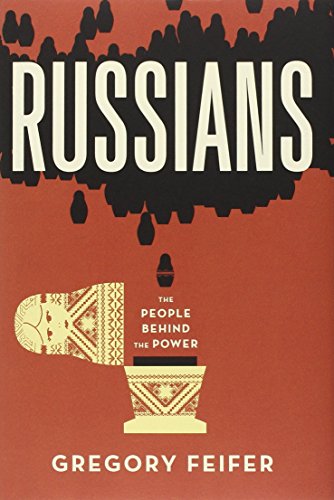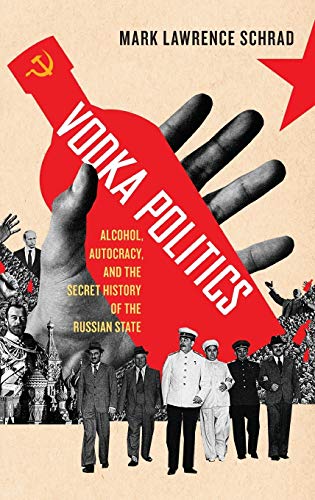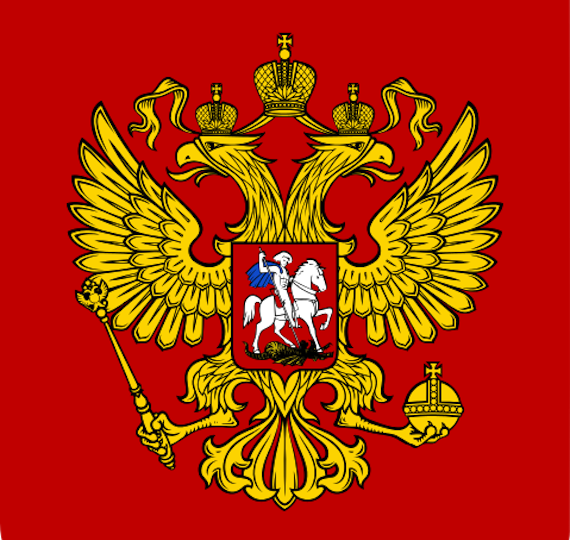
“Anyone who doesn’t regret the passing of the Soviet Union has no heart. Anyone who wants it restored has no brains,” Vladimir Vladimirovich Putin once said. Back in 2000, he personally ordered the restoration of Soviet “icons of dictatorship” in St. Petersburg that Russians celebrating the collapse of communism had stripped away years before. In doing so, he was practicing a particular kind of nostalgia that defines an entire generation’s relationship to present-day Russia, a generation now producing a body of post-Soviet literature that’s just in its infancy. These authors are children of the Soviet Union — their parents were taught to worship the impossible ideal of the Socialist Realist “New Soviet Man” before they boldly transported themselves and their children to the mythical West. They are neither of Putin’s Russia nor other to it, nor are their books.

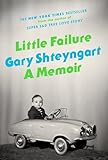 Gary Shteyngart, in his much-lauded new memoir Little Failure, writes of a certain “vulgar nostalgia, the ‘poshlost‘ Nabokov so despised.” Poshlost is Nabokov’s term for “dishonest pseudo-literature” — it “speaks in such concepts as ‘America is no better than Russia,’” Nabokov told his Paris Review interviewer. Nostalgia for the Soviet Union does often lead to such poshlost, but its vulgarity may not be entirely legible to an American audience, much like Russianness itself. Without having witnessed the reality of life in the Soviet Union, it’s easy to mistake its comedy as farce. Indulging nostalgia for the USSR is also a way of dipping one’s toes back in the treacherous genre of socialist realist literature, which now as then enables you to view Russia “through a mist of rosy nostalgia,” as Anya Von Bremzen writes in her memoir, Mastering the Art of Soviet Cooking: A Memoir of Food and Longing. “Nostalghia — it’s the MOST HORRIFYING emotion known to mankind!” — and yet amongst the Soviet Union’s former comrades, she notes, it’s now “fashionable.”
Gary Shteyngart, in his much-lauded new memoir Little Failure, writes of a certain “vulgar nostalgia, the ‘poshlost‘ Nabokov so despised.” Poshlost is Nabokov’s term for “dishonest pseudo-literature” — it “speaks in such concepts as ‘America is no better than Russia,’” Nabokov told his Paris Review interviewer. Nostalgia for the Soviet Union does often lead to such poshlost, but its vulgarity may not be entirely legible to an American audience, much like Russianness itself. Without having witnessed the reality of life in the Soviet Union, it’s easy to mistake its comedy as farce. Indulging nostalgia for the USSR is also a way of dipping one’s toes back in the treacherous genre of socialist realist literature, which now as then enables you to view Russia “through a mist of rosy nostalgia,” as Anya Von Bremzen writes in her memoir, Mastering the Art of Soviet Cooking: A Memoir of Food and Longing. “Nostalghia — it’s the MOST HORRIFYING emotion known to mankind!” — and yet amongst the Soviet Union’s former comrades, she notes, it’s now “fashionable.”
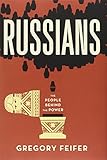 Nostalghia has understandably compelled many American-Russian authors, all of whom have parents who left the rodina, the homeland, in Soviet times, to make return trips to Russia. Von Bremzen, Gary Shteyngart, and Gregory Feifer in his forthcoming Russians: The People Behind the Power all chronicle their revisitations of Russia in their semi-autobiographical works, treading where their grandparents, parents, and younger selves tread before. Each has his or her own style: Von Bremzen’s is culinary, Shteyngart’s humoristic, Feifer’s journalistic. They are just as much Soviet social histories as they are personal histories (Von Bremzen and Shteyngart’s are also testimonies to the food and publishing industries, respectively). They tuck family heirlooms — old photographs and recipes– into their pages. They returned to warily reacquaint themselves with the landscape of their youth and history, primed to report back to their audiences back in the United States.
Nostalghia has understandably compelled many American-Russian authors, all of whom have parents who left the rodina, the homeland, in Soviet times, to make return trips to Russia. Von Bremzen, Gary Shteyngart, and Gregory Feifer in his forthcoming Russians: The People Behind the Power all chronicle their revisitations of Russia in their semi-autobiographical works, treading where their grandparents, parents, and younger selves tread before. Each has his or her own style: Von Bremzen’s is culinary, Shteyngart’s humoristic, Feifer’s journalistic. They are just as much Soviet social histories as they are personal histories (Von Bremzen and Shteyngart’s are also testimonies to the food and publishing industries, respectively). They tuck family heirlooms — old photographs and recipes– into their pages. They returned to warily reacquaint themselves with the landscape of their youth and history, primed to report back to their audiences back in the United States.
For Von Bremzen, returning to the USSR only made her want to leave, to “flee from this insane asylum where history has been dismantled and Photoshopped into a pastiche of victims and murderers, dictators and dissidents, all rubbing sentimental shoulders together.” Within Russia, nostalgia has taken the form of patriotism: “In today’s society, one so desperately lacking an anchoring national narrative, the Kremlin was once again exploiting the cult of [the Great Patriotic War] to mobilize what was left of national patriotism, to bring generations together in a tightly scripted rite of remembering,” Von Bremzen explains. The result is that the cult of Stalin is still alive and well in Russia, along with the glorified Socialist Realist imagery of Soviet Russia and the “bureaucratic Sovietspeak [that] inadvertently stripped the language of Pushkin of much of its greatness and might,” as Shteyngart put it. To restore some of that greatness — and to provide some context for the systemic dysfunction of Russian culture — seems to be the common goal of these writers, who themselves have a fraught relationship with the rodina. Writing of their one-time home from the safe harbors of New York and Boston, they are uniquely positioned to start piecing together a national narrative — or rather a narrative of the Russian people.
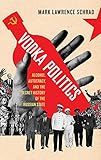 “An outsider’s perspective means being able to see the forest for the trees,” Mark Lawrence Schrad cautions in the preface to Vodka Politics. Schrad, an American scholar of Russian studies, felt the need to provide a disclaimer regarding his “biases and motivations as a foreigner writing about a taboo subject like alcohol in Russia.” Whether one can understand an entire nation while observing it from the distanced position of an ex-patriot is well-trodden ground. In a now-infamous letter to Nikolai Gogol from 1847, the Russian literary critic Vissarion Belinsky reproached Gogol for writing home from his exilic perch in Italy with unsolicited counsel for Mother Russia. “You have been accustomed for so many years to look at Russia from your beautiful far-away; and [do] not know that there is nothing easier than seeing things from a distance the way we want to see them,” Belinsky wrote, enraged and heartbroken that Gogol, who by that point had been living in Italy for the better part of a decade, had proposed that religion alone could save the spirit of the country. “In that beautiful far-away you live a life that is entirely alien…Therefore you failed to realize that Russia sees her salvation not in mysticism or asceticism or pietism, but in the successes of civilization, enlightenment, and humanity,” Belinsky surmised. His disdain for his friend’s abandonment and resulting mischaracterization of Russia — their shared rodina — is a familiar critique of emigrant literature. Living in the “mythical zagranitsa” — the mythical abroad, as Von Bremzen calls it, can sentimentalize one’s understanding of Mother Russia. For the sake of making Russia legible to foreign eyes, one might be lulled into lazily attributing the country’s systemic idiosyncrasies, abuses, and dysfunction to the tremors of a universal, mystical “Russian Soul.” But does such a thing really exist? Did it ever? Is it the only explanation for what makes Russians Russian? For this crop of authors, the answer is nyet.
“An outsider’s perspective means being able to see the forest for the trees,” Mark Lawrence Schrad cautions in the preface to Vodka Politics. Schrad, an American scholar of Russian studies, felt the need to provide a disclaimer regarding his “biases and motivations as a foreigner writing about a taboo subject like alcohol in Russia.” Whether one can understand an entire nation while observing it from the distanced position of an ex-patriot is well-trodden ground. In a now-infamous letter to Nikolai Gogol from 1847, the Russian literary critic Vissarion Belinsky reproached Gogol for writing home from his exilic perch in Italy with unsolicited counsel for Mother Russia. “You have been accustomed for so many years to look at Russia from your beautiful far-away; and [do] not know that there is nothing easier than seeing things from a distance the way we want to see them,” Belinsky wrote, enraged and heartbroken that Gogol, who by that point had been living in Italy for the better part of a decade, had proposed that religion alone could save the spirit of the country. “In that beautiful far-away you live a life that is entirely alien…Therefore you failed to realize that Russia sees her salvation not in mysticism or asceticism or pietism, but in the successes of civilization, enlightenment, and humanity,” Belinsky surmised. His disdain for his friend’s abandonment and resulting mischaracterization of Russia — their shared rodina — is a familiar critique of emigrant literature. Living in the “mythical zagranitsa” — the mythical abroad, as Von Bremzen calls it, can sentimentalize one’s understanding of Mother Russia. For the sake of making Russia legible to foreign eyes, one might be lulled into lazily attributing the country’s systemic idiosyncrasies, abuses, and dysfunction to the tremors of a universal, mystical “Russian Soul.” But does such a thing really exist? Did it ever? Is it the only explanation for what makes Russians Russian? For this crop of authors, the answer is nyet.
“I do not believe in a Russian soul,” Shteyngart writes. “You are not what you want. You are what wants you back.” Shteyngart has capitalized on the seemingly endless well of comedy that is the immigrant experience in America, a comedy that my own family became intimately familiar when they left the Latvian Soviet Socialist Republic during Perestroika. His life story is not at all unique among Soviet emigrés, but what makes Little Failure worthwhile is what it has to say about how Russianness registers to American eyes and ears. Shteyngart’s statement of purpose comes as he recalls sitting amidst a gathering of his American classmates, and writes, “this is a community. These people know each other, understand one another, came of age with one another. They were tied by kin and outlook, as were their parents…What happened here, this was nobody’s fault. We Soviet Jews were simply invited to the wrong party. And then we were too frightened to leave. Because we didn’t know who we were. In this book, I’m trying to say who we were.” Who they were was a group of people bonded by religion, origin, and culture — bonded by a willful failure to live up to the cosmonaut ideal of the “New Soviet Man” infamously satirized by the “eternal dissident” Alexander Zinoviev in his 1985 Homo Sovieticus.“We were all connected by failure back then,” Shteyngart writes.
It has been a big year for H. Sovieticus, who makes quite the comeback in these works. In Shteyngart’s depiction, this species of man never makes it past adolescence: “Often at a dinner table, a male Homo soveticus will say something uncouth, hurtful, disgusting, because this is his teenager’s right and prerogative.” For Von Bremzen, he becomes the “Long-suffering Homo sovieticus” who “gobbled down deception,” raised as he was on socialist realism. Socialist realist art and literature defined the Soviet ideal for almost the entirety of the 20th century; since then, it has been almost entirely discounted as blatant propaganda, despite the fact that some Soviet artists successfully critiqued its utopian premise even while working on official state commissions. “In socialist realist visions, kolkhoz maidens danced around cornucopic sheaves of wheat, mindless of famines,” Von Bremzen explains. “Socialist realism encircled like an enchanted mirror: the exhausted and hunger-gnawed in real life peered in and saw only their rosy future-transformed reflections.” It was more or less the inverse of how wishful Soviet emigrants fantasized about the abundance of the capitalist West before actually setting foot there.
Feifer provides the historical background: “Socialist realist literature, a term coined in 1932 to describe what had emerged as the single genre acceptable to the state, extolled privation in private life,” he writes. “Its protagonists — ‘positive heroes’ — epitomized the ideal ‘new Soviet man,’ who recapitulated the official version of history, which invariably led to the triumph of Marxism-Leninism.” Feifer’s mother grew up in the USSR and his family photos of life in Soviet Moscow are scattered throughout the book, just as Shteyngart’s are in Little Failure. Like Shteyngart and Bremzen, Feifer meticulously explains the various episodes of uprooting in the nation’s history that displaced the authors’ grandparents and great-grandparents, but he has an almost unbearably scientific approach to discerning “the fundamental Russian character,” which derives from the unfailingly objective reportage that makes up the bulk of the book. But because he is unabashedly determined to deliver “a definitive explanation of what makes Russia Russian,” Feifer misses the point. In Vodka Politics, Schrad explains why: “simply assuming that intoxication and self-destruction are somehow inherent cultural traits — unalienable parts of what it is to be Russian, almost down to the genetic level — is akin to blaming the victim.” And indeed, it’s especially in Feifer’s explanation of the Russian predilection to drink that this comes through; “I believe Russia’s attitudes to drinking reflect something deeper in the country’s culture: a sense of pessimism about the ability to better oneself,” inoculated over centuries of systemic dysfunction and political upheaval. But if that pessimism was actually an endemic trait, it’s possible that none of these authors would have been able to write of the Soviet Union from their homes in the West; their parents might not have got them out.
Rather, what makes Russians Russian, these works suggest, has at least something to do with a shared familiarity and disillusionment with socialist realism’s communist kitsch. Sarcasm is the active ingredient that transforms nostalghia into what you could call post-Soviet capitalist realism, making for an altogether more multivalent, contemporary notion of “Russianness.” “What [Russia] needs is not sermons (she has heard enough of them!) or prayers (she has repeated them too often!), but the awakening in the people of a sense of their human dignity lost for so many ages in mud and filth,” Belinsky wrote so many decades ago, when he himself was abroad in Salzbrunn. In Little Failure, Shteyngart sounds like he is channeling Belinsky’s ghost — looking at his parents, he writes, “behind those accents, behind the fearful, angry, conservative views, there is a culture…of a superpower that was tossed on history’s ash heap, yes, but the culture of Pushkin and Eisenstein and Shostakovich and Eskimo ice cream…” Communist kitsch is also connected to that pre-Soviet culture, if by very thin strings. And while Shteyngart, Von Bremzen, and Feifer may traffic in “self-consciously ironic appropriations of Soviet-ese” they also draw heavily upon Russia’s literary giants, reverentially citing Anna Akhmatova, Pushkin, Tolstoy, and Gogol. What results is a blend of patriotism and nostalgia that Bremzen so presciently articulates: “It’s patriotism for that nineteenth-century Russian idea of Culture with a capital C — an idea, and an ideal, that we ex-Soviets from Ukraine and Moscow and Latvia have never abandoned.”
Image Credit: Wikipedia



